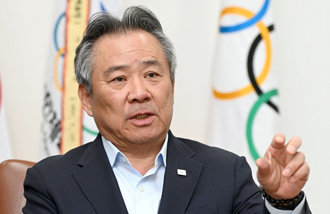[Opinion] Korean Politics and Coup DEtats
[Opinion] Korean Politics and Coup DEtats
Posted March. 14, 2004 22:58,
The National Assembly has passed a Presidential Impeachment Bill. The anti-Roh factions are celebrating this as a victory of democracy while the pro-Roh factions are criticizing this event and calling it a Legislative Coup DEtat. In Korean politics, the word coup detat is not an unfamiliar word. However, the phrase Legislative Coup Detat has an unfamiliar ring to it.
In the last 50 years or so, there has been four coup detats in Korea. The most representative of these was the military coup led by General Park Chung-hee on May 16, 1961. By mobilizing only about 3,600 military members, General Park seized power through a bloodless coup.
The next coup was a military coup led by General Chun Doo-hwan and the armed forces. This coup started on December 12, 1979, with the seizing of power by the army and ended May 17 the following year as a marathon-style coup.
However, a little known fact is that there were actually two more coups in recent Korean history. The first of these is the Pusan Political Crisis, led by then President Rhee Seung-man to extend his Presidential term. Concluding that it would be difficult to win under a system of indirect presidential elections, former President Rhee declared martial law, threatened the National Assembly, and forced a constitutional amendment providing for direct presidential elections, thereby guaranteed his re-election. This coup was a mini marathon coup that lasted for 2 months between May and July of 1952.
The second coup was the Yushin Coup led by former President Park on October 17, 1972. Anticipating that his re-election would be difficult under direct presidential elections, former President Park declared martial law, dissolved the National Assembly and then, through a Constitutional amendment that essentially switched the system over to indirect presidential election, he extended his rule.
The first two coups mentioned above were anti-government coups where the military usurped power. The latter two coups were coups in which the then Presidents mobilized the army and threatened the National Assembly in order to extend their power. The passage of this impeachment bill occurred against the backdrop of a government where the different governmental branches are dominated by opposition parties, and represents the culmination of a year-long conflict between the President and the National Assembly.
Recent events are similar to the two aforementioned President-led coups in the sense that they reflect a clash between the President and the National Assembly. However, recent events are different from these two coups in the sense that they represent an attack against the President.
Until recently, Korea was a country known for the abusive excesses of its Imperialistic Presidential system. Now, it has become a country where the National Assembly impeaches the President. Whether this is a legislative democratic victory or legislative coup detat remains to be seen.
Headline News
- ‘Literature class with Han Kang’s writing for 10 years,’ says Oxford professor
- Gold price reaches new record high
- Moon Da-hye appears at police after drunk driving accident
- N. Korea redefines S. Korea as ‘hostile state’ in revised constitution
- Samsung develops graphic DRAM with industry-leading capacity and speed







